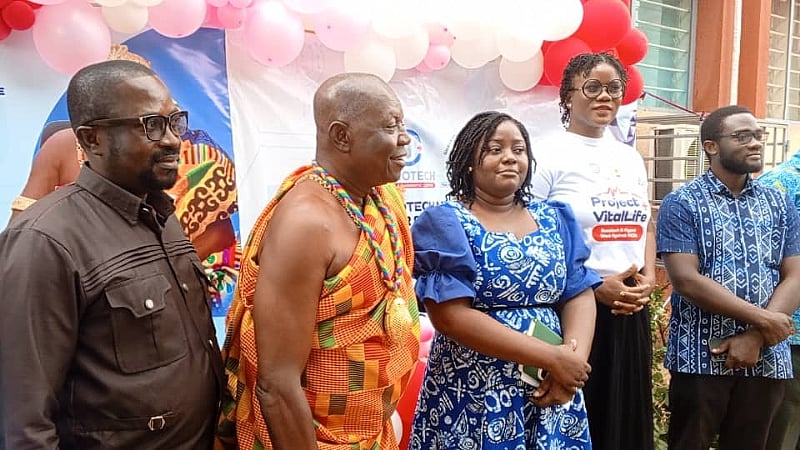The Agona West Municipal Health Directorate, in collaboration with the Agona Swedru branch of Sonotech Medical and Diagnostic Center, has embarked on a critical mission to combat the growing threat of non-communicable diseases (NCDs) within the municipality. Recognizing the insidious nature of these “silent killers,” which often manifest with minimal early symptoms, the partners have launched the Vital Life Project, an initiative designed to raise public awareness and promote proactive health management. This collaborative effort aims to equip community health workers and volunteers with the knowledge and skills necessary to effectively educate the public about the risks, prevention, and management of NCDs. The project’s focus encompasses four prevalent and impactful NCDs: sickle cell disease, diabetes, hypertension, and breast cancer.
The launch of the Vital Life Project underscores the urgent need for community-based interventions to address the rising burden of NCDs. Dr. Grace Buckman, Medical Director of Sonotech, emphasized the widespread underestimation of the dangers posed by these conditions despite their significant contribution to mortality. She highlighted the project’s proactive approach, aiming to educate the public and encourage regular health screenings for early detection, ultimately preventing the devastating consequences often associated with late diagnosis. Dr. Buckman’s call to action resonates with the experiences of healthcare providers who witness the impact of delayed diagnosis and treatment, emphasizing the critical role of community education in mitigating the progression of NCDs.
Dr. Joycelyn Maame Esi Darkwa, the Agona West Municipal Health Director, articulated the strategic rationale behind the partnership with Sonotech, emphasizing the combined strength of both organizations in amplifying the message of NCD prevention and management. The collaborative approach leverages Sonotech’s medical expertise and the Health Directorate’s community outreach capabilities to ensure the project’s message reaches the intended audience. Recognizing the importance of community ownership, Dr. Darkwa encouraged participants to become ambassadors for the Vital Life Project within their own social networks, promoting a culture of health consciousness and mutual support. This grassroots approach emphasizes the power of peer-to-peer communication in influencing health behaviors and fostering a sense of collective responsibility for community well-being.
The Vital Life Project incorporates a structured training program for 40 health workers and 20 community health volunteers. This training will equip these frontline health advocates with the necessary knowledge and skills to effectively educate the public about NCDs. The curriculum will cover various aspects of NCD prevention, early detection, and management, focusing on the four target conditions: sickle cell disease, diabetes, hypertension, and breast cancer. By empowering these individuals with the relevant information and communication skills, the project aims to create a network of informed and passionate health advocates within the community. This capacity-building initiative ensures the sustainability of the project’s impact by creating a cadre of skilled community health workers capable of delivering ongoing education and support.
Following the three-month training period, the project will transition to a community engagement phase, featuring a series of community durbars designed to disseminate information and foster dialogue on NCDs. These interactive forums will provide a platform for community members to learn about the risk factors, symptoms, and prevention strategies associated with sickle cell disease, diabetes, hypertension, and breast cancer. The durbars will also emphasize the importance of regular health check-ups and early intervention in managing these conditions. By creating a space for open communication and shared learning, the project aims to empower individuals to take control of their health and make informed decisions about their well-being.
Beyond the specific focus on the four targeted NCDs, the Vital Life Project promotes a holistic approach to health and well-being. Dr. Darkwa advocated for lifestyle modifications as a critical element of NCD prevention, urging individuals to abstain from harmful practices such as drug abuse and excessive alcohol consumption while embracing healthy eating habits and regular physical activity. This comprehensive approach recognizes the interconnectedness of various lifestyle factors and their influence on overall health. By encouraging positive lifestyle changes, the project aims to create a healthier community environment that supports individual well-being and reduces the prevalence of NCDs. The Regent of Agona Swedru, Nana Kweku Essieni V, lent his support to the project, highlighting the importance of community participation and personal responsibility in achieving health goals. His endorsement further reinforces the project’s message and encourages community members to actively engage in promoting their health.


